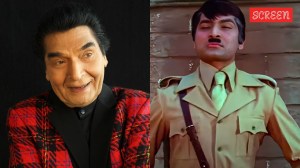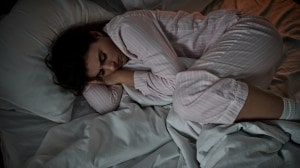Another Friend of Tony
The choice for the very powerful post of vice-chairman of the BBC appears to be Gail Rebuck, publisher wife of Philip Gould, Tony Blair's tr...

The choice for the very powerful post of vice-chairman of the BBC appears to be Gail Rebuck, publisher wife of Philip Gould, Tony Blair’s trusted opinion pollster. An announcement is due on July 21.
Her name emerged from a New Labour process designed to inject “more openness and transparency”. Yet many are asking whether the process is any improvement on the old one. Apart from the inner Blairite connection, Rebuck scores well. There is a consensus that it is high time the 12-strong BBC board had a woman at or near the top. Rebuck, aged 46, is a highly successful chief executive of Random House Publishing, well versed in business and in dealing with talent. The only question is whether she has time to do the job.
Yet the choice also confirmed the increased power of Sir Christopher Bland. For the first time a BBC chairman sat on the selection committee, and Sir Christopher played his part in rejecting Lord (David) Puttnam, the film-maker endorsed by BBC staff, whose opinions were also sought for thefirst time.
The post, and two governorships, had been advertised, another novel move. Yet to many the process seems little improved on the discredited system of “smoke and mirrors” that in the 1980s produced Thatcher-placement men and women. “Has it really made the system more open, or simply created a different sort of charmed circle?” asked one highly placed veteran BBC expert. Even more telling as to the state of New Labour is the question why Lord Puttnam, an “old” Labour figure in style and values, was rejected by a panel, which also included businessman Christopher Hogg and the Culture Department’s permanent secretary, Robin Young. (The process had the political value of distancing the Culture Secretary, Chris Smith, an early Puttnam supporter, from the outcome.)
Yet, unwisely, Lord Puttnam conducted an open campaign, believing years of Birtism, now reinforced by Sir Christopher, a sophisticated businessman and friend of the BBC director general, needed a corrective. The stance made himunacceptable.
Lord Puttnam even believes he was on a list of people submitted by the BBC to the Culture Department as unsuitable: Sir Christopher denies this. Smith distanced himself not least because, before the final interviews last week, it was clear that No 10, led by Peter Mandelson, was taking a close interest too, and listening to BBC objections.
The governors also pick the next director general. Sir John Birt formally steps down in 2000, and in the 18 months left the top posts just beneath him will also start to be reshuffled. Yet, if Rebuck falls, the Government still has a respectable Labour- supporting alternative.
The approachable working Labour peer Lady (Barbara) Young, aged 50, is already making a splash as chairman of English Nature. Known to Sir Christopher through their NHS work, and an associate through her Edinburgh upbringing of Donald Dewar, Robin Cook and Gordon Brown, she said yesterday: “It would be a privilege to serve. The BBC is a precious jewel in the crown.”





- 01
- 02
- 03
- 04
- 05

























